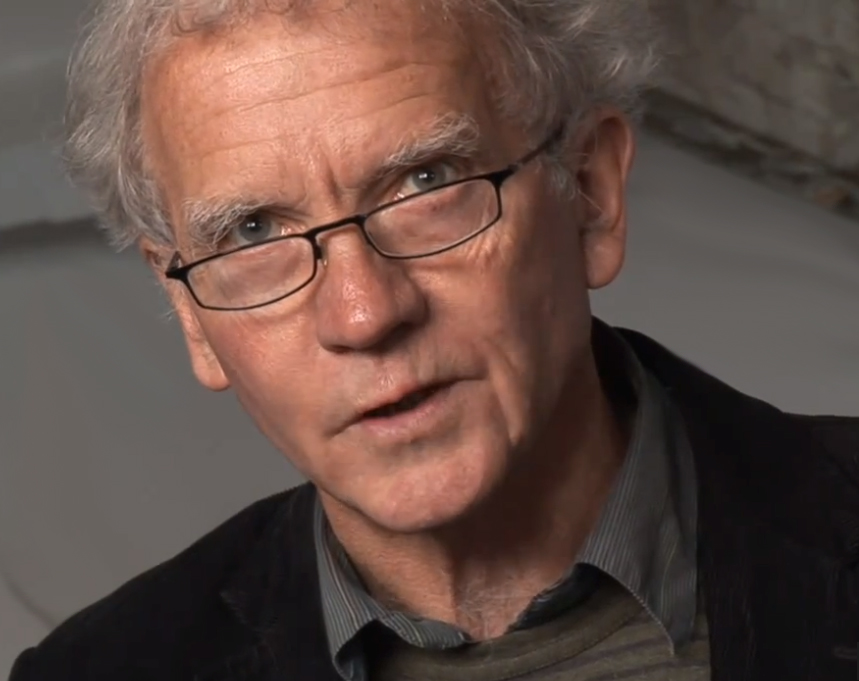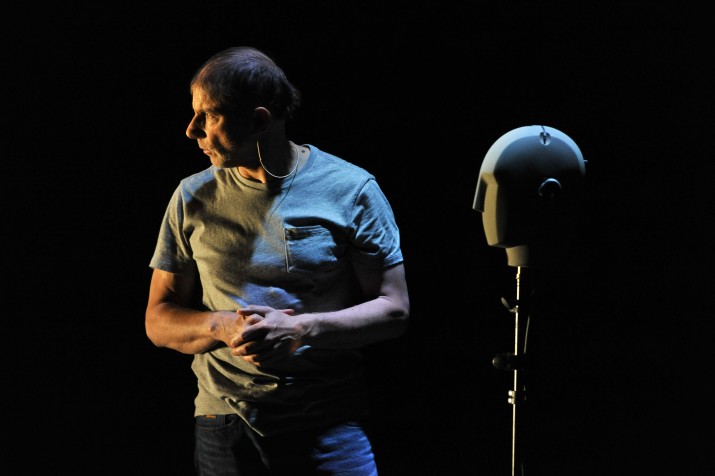David Constantine has long been recognised as one of England’s finest living proponents of the short story form. It’s no coincidence that he has worked extensively as a poet, too: his prose style is pared-down, precise and gently lyrical. His 2012 collection Tea at the Midland won the Frank O’Connor International Short Story Award.
Right now, Constantine‘s stock is higher than ever. His story In Another Country has been adapted into 45 Years, the new British film starring Tom Courtenay and Charlotte Rampling which has been released this week to a barrage of critical acclaim. And in its way this is a very Northern success story. The film’s director Andrew Haigh hails from Harrogate; Tom Courtenay was born and bred in Hull; Constantine himself comes from Salford; and Comma Press, publishers of Constantine’s short story collections, are based in Manchester city centre.
Constantine wrote the original story 14 years ago for the literary journal, The Reader. He recalls: “A French friend of mine, who had just come back from Chamonix, told me of a local mountain guide killed in an accident in the 1930s and now, with the withdrawing of the ice, discovered entirely preserved in a crevasse. Also that this guide had a son, now a very old man still living in the village, who was taken to see the youthful father in the ice. That story haunted me. And I added to it something I’d read about the retreat of the Alpine glaciers, that far less water has come down than was contained, as ice, in them – and that this excess is dammed up underground, high up in the valleys, and one day, experts fear, will break loose. In my story, and in the film, that unstoppable breaking loose of the past is the central image.”
 Constantine first became aware that a film adaptation was in the works “a long time ago, as a possibility, when Haigh approached [Comma Press founder] Ra Page. Then nothing for many months, until they knew they had the funding to go on with it”. He seems to have found the experience of the making of the film very agreeable.
Constantine first became aware that a film adaptation was in the works “a long time ago, as a possibility, when Haigh approached [Comma Press founder] Ra Page. Then nothing for many months, until they knew they had the funding to go on with it”. He seems to have found the experience of the making of the film very agreeable.
“Apart from writing the story, I was not at all involved, which suited me very well. Seeing the film – which I admire very much – made me understand how differently film and fiction work. I didn’t know Andrew’s work before this. Now I will always look out for it. He’s an artist, and very humane.”
At the present moment, no other film versions of Constantine’s stories are in the pipeline. “I don’t know of any such interest,” he says. “My stories, and poems almost always begin in some concrete image, often a particular location that I know well. In that sense, I suppose, they might lend themselves to being filmed. At least, when I’m writing it, the story and its characters are very visually located. And to me at least, the voices are very audible. Each story, I might say, has a tone of voice.”
Comma Press has just published a collection of Constantine’s selected stories, entitled In Another Country, as well his new novel, The Life-Writer. The latter concerns a literary biographer turning her skills to unpicking the life of her late husband. Indeed, it happens to share some preoccupations with 45 Years, and could well appeal to admirers of the film.
“I didn’t really become aware of that until I had finished it, and before the film came out. But yes, story and novel work similarly. Katrin, in her wish to stay alive, unleashes something – her dead husband’s passionate early life – which threatens to annihilate her. ‘Back then’ is let into the present, and is hard to deal with.”
 Constantine’s own past (his Salford upbringing) has certainly had a hefty impact on him.
Constantine’s own past (his Salford upbringing) has certainly had a hefty impact on him.
“The time and place of my growing up affected me profoundly, and they still do. Very often the ‘tone of voice’ I spoke of is local to Salford and Manchester – by which I don’t mean I try to write that dialect. I feel an immense gratitude to my family – back into lives that began in the 19th century – and a great loyalty also. They shaped me. Writing about my grandmother, for example, who was widowed in the First World War, I knew I had a subject. Any writer would be grateful for that. For my generation, growing up after the Second World War, things were moving with hope and with resolution towards a better, fairer society. My politics now is the politics of disappointment and rage, that those good beginnings should have been so deliberately halted and reversed.”
Back in February 2013, Constantine shared some passionate feelings about the current crisis in the arts during an author event for The Word Factory in London. Notably, he argued that “if you want to know what the truth is nowadays, you go to fiction”. It’s a statement which he feels is even more justified a mere two years later.
“Yes, things have got decidedly worse,” he says. “Fiction and poetry are more necessary than ever. In times like ours – of great evasiveness, mendacity and ugliness in public discourse – writers and readers can sustain their love of truth and beauty in the one thing no government can ever privatise: our English language and its poetry and fiction.”
But on the matter of the release of 45 Years, Constantine declares that he’s “very pleased indeed -for myself, and even more for Ra Page and Comma, who deserve all success and praise”.
Main image by Nathan Cox
 45 Years is now on general release – to read Northern Soul’s review click here
45 Years is now on general release – to read Northern Soul’s review click here
David Constantine will be appearing at HOME in Manchester on 3 September in an event in conjunction with Manchester Literature Festival, for more information click here
See David speaking about the crisis in the arts at Word Factory in 2012 here











